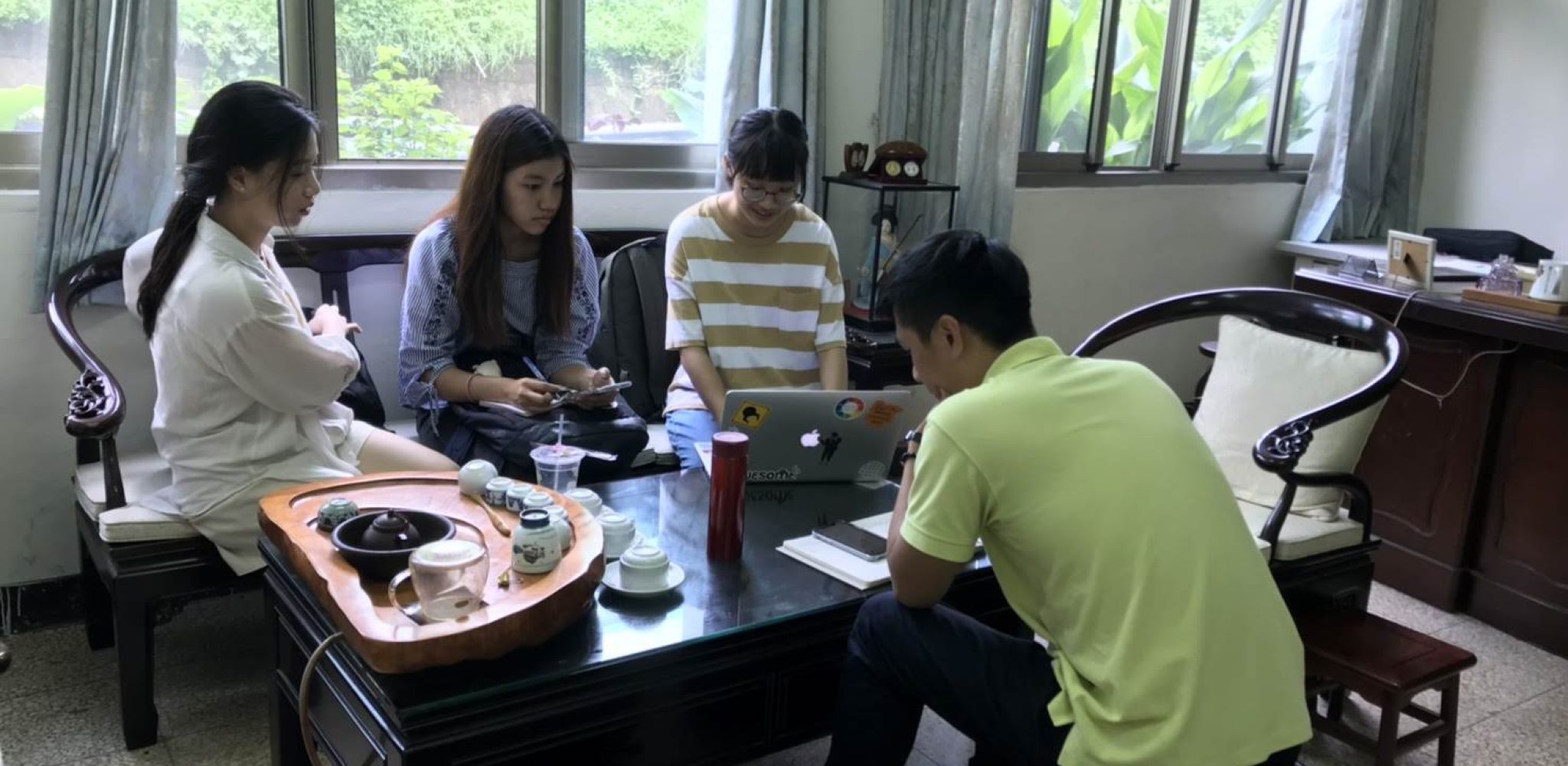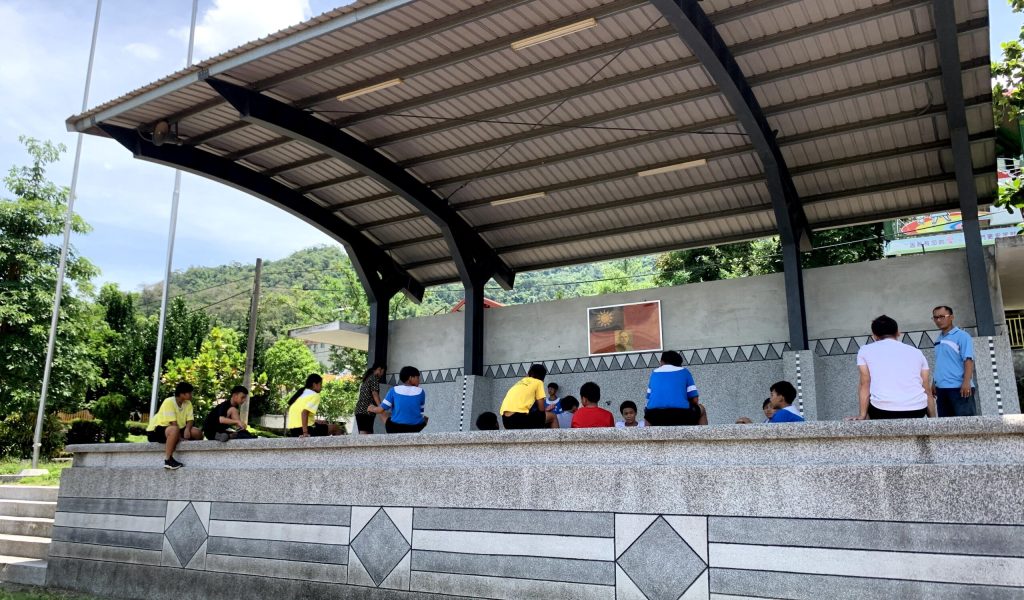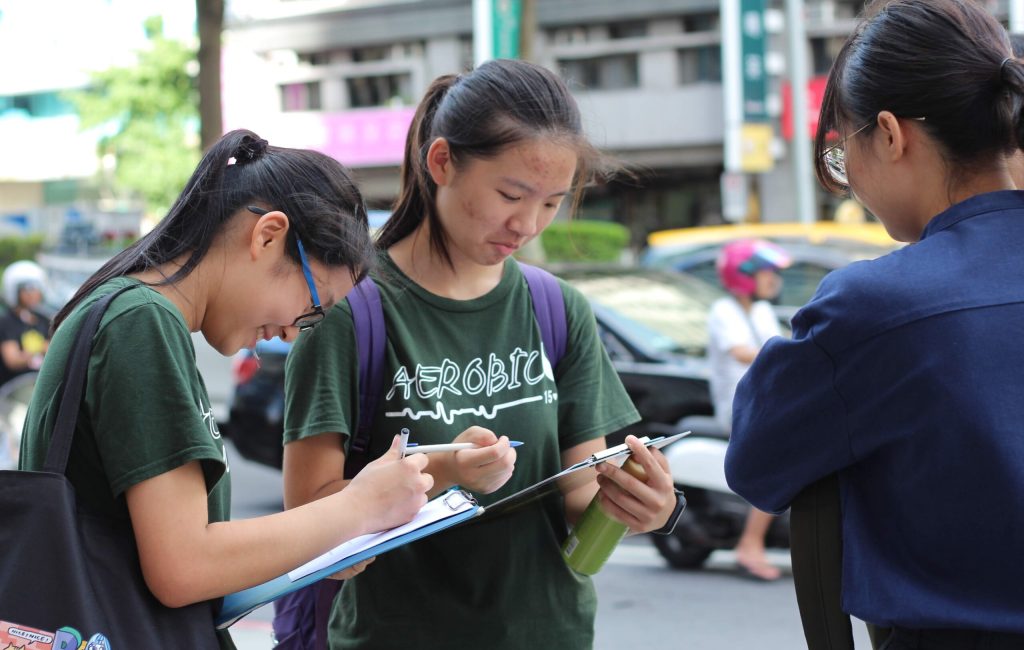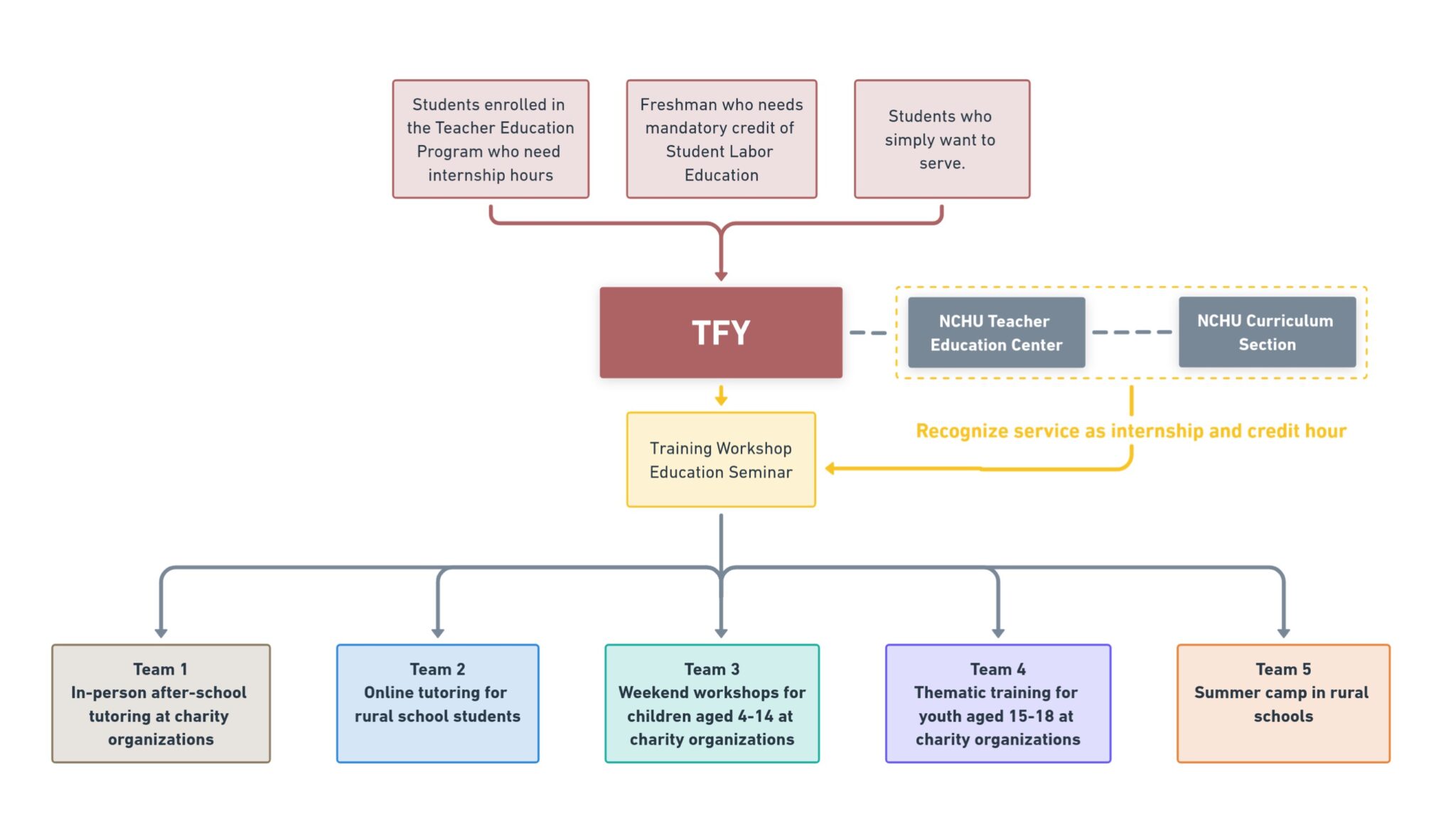TFY
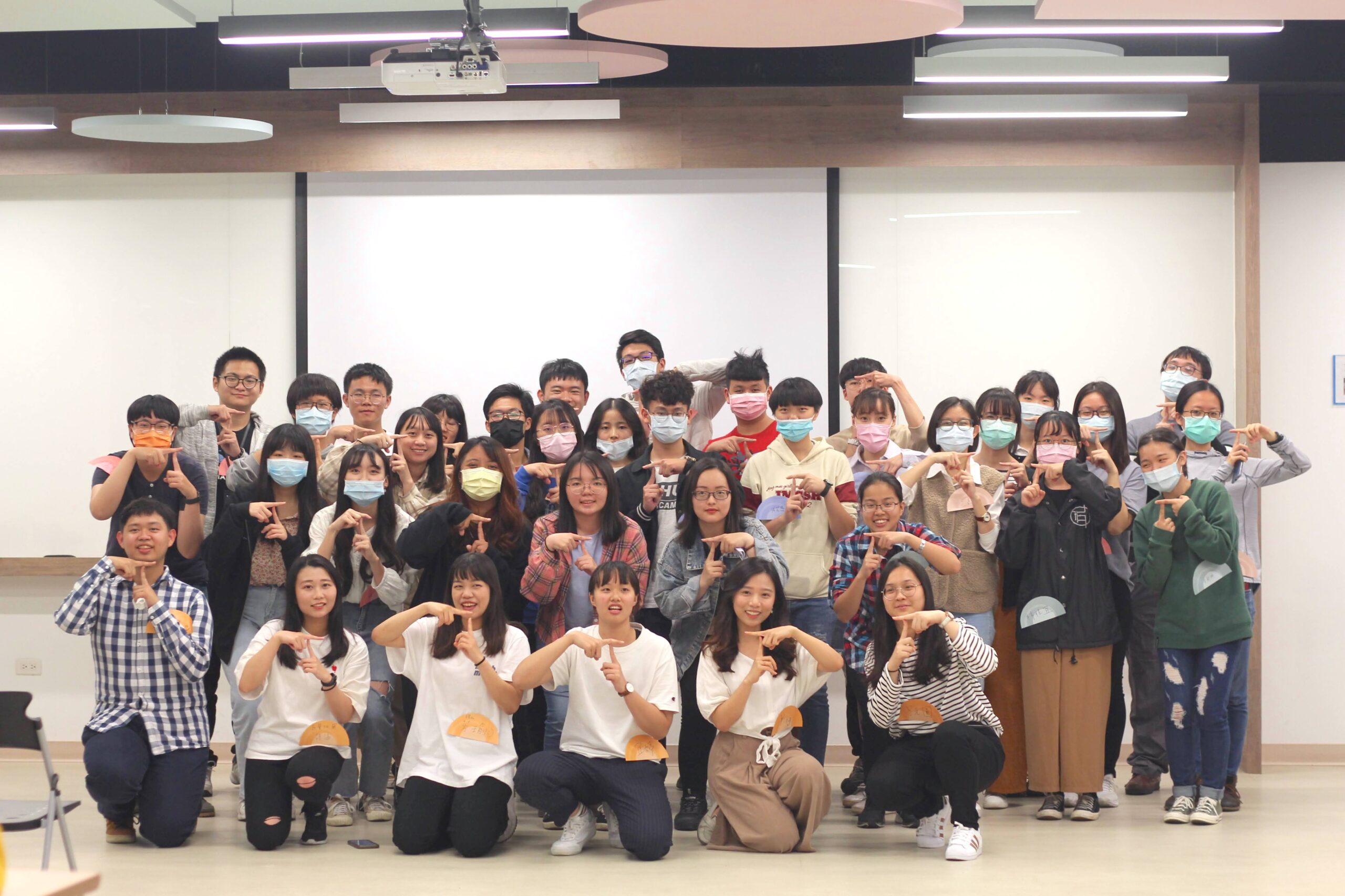
My Role
Time
Founder/President
Aug 2018 – Jul 2020
Project Overview
Design TFY (Teach for Youth) tutoring platform that provided vulnerable youth with educational resources, owned Outstanding Club Award from Taiwan Ministry of Education
Motivation
Growing up in a rural environment with limited access to educational resources, I often felt helpless and uncertain about my future without adequate support. This experience inspired me to bridge the gap in resources for vulnerable youth and students in similar situations, driving my passion to create accessible educational opportunities that can empower them to overcome challenges and pursue brighter futures.
Problem
Youth in child protection institutions and students in rural areas often suffer from a lack of educational resources, leading to significant developmental and academic challenges. This shortage hampers their ability to keep pace with peers and affects their long-term educational and personal growth.
Research
Research Goal
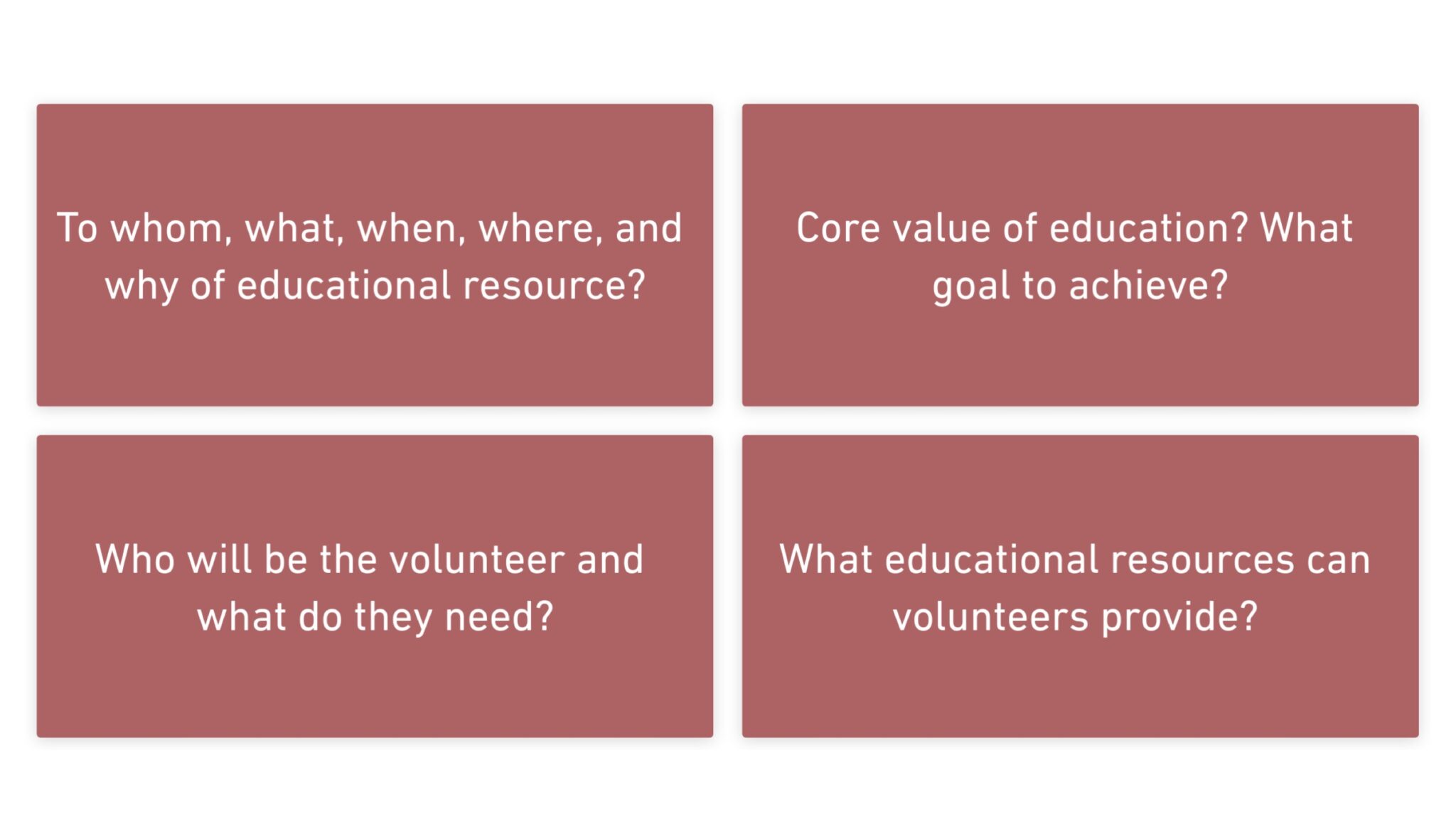
Research Methodology
Charity Interview
We engaged with several charities, including shelters for children and youth affected by domestic violence, schools for visually impaired children, and juvenile reformatory schools for youth with criminal records.
Most of the institutions were facing the same issue of resource shortages, particularly in educational resources.
“Their backgrounds of abuse have led to developmental delays and attention disorders, causing them to fall behind academically.”
— social worker
Rural School Visit
We visited elementary and junior high schools in the mountains, where there is no public transportation, and the only way to reach them is by driving for hours.
— school teacher
The size of schools is tiny, there were only 3 classes in one grade, all of the students are from indigenous community.
“Their parents are blue-collar workers, and without other opportunities, the children may follow the same path.”
Conversation with Vulnerable Children

University Student Interception
We gathered university students’ opinions on volunteering for educational roles.
Insight
User's Need
We analyzed the collected information to gain better understanding of users’ demand, which would guide the design idea.
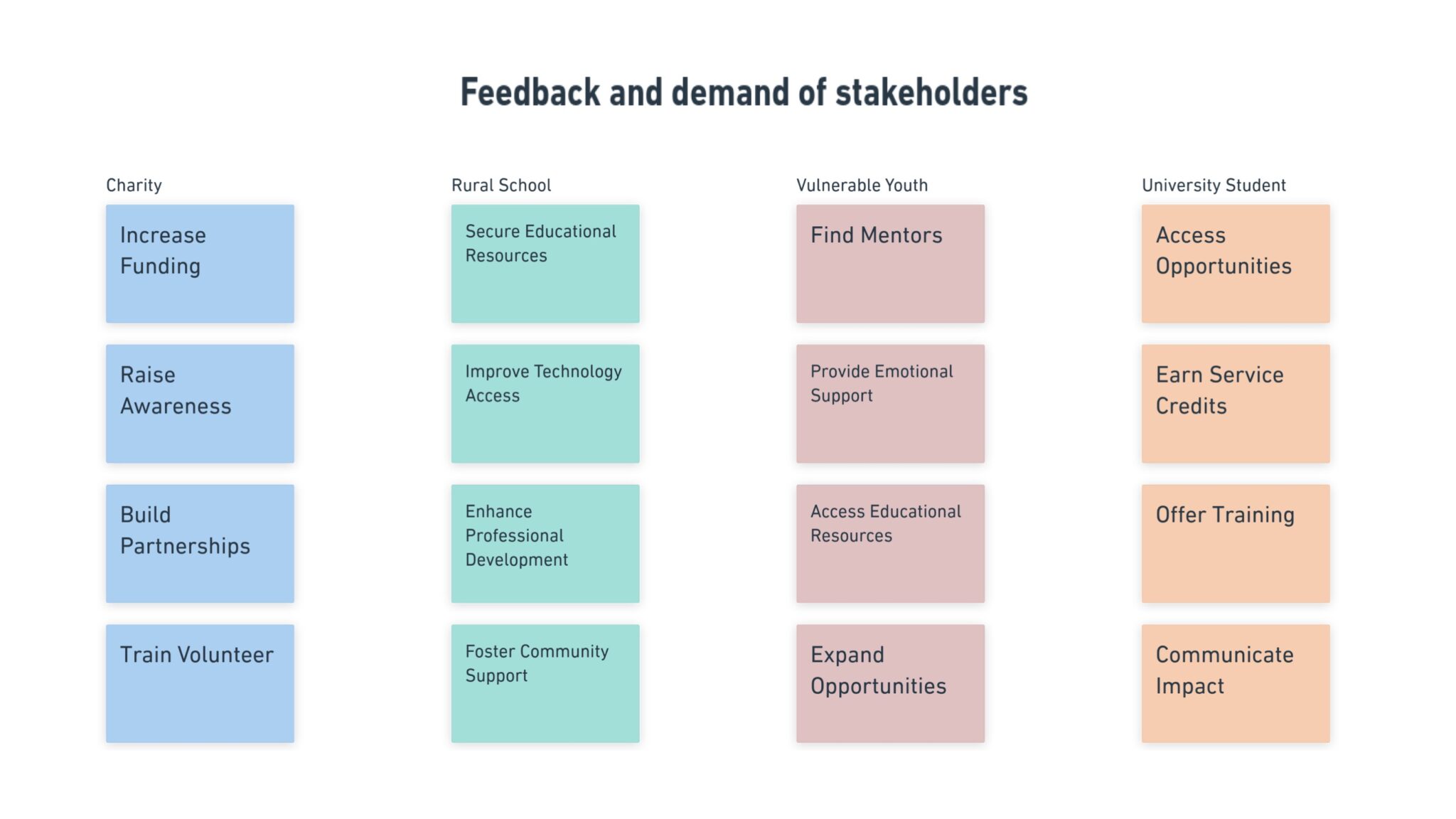
Design Principle
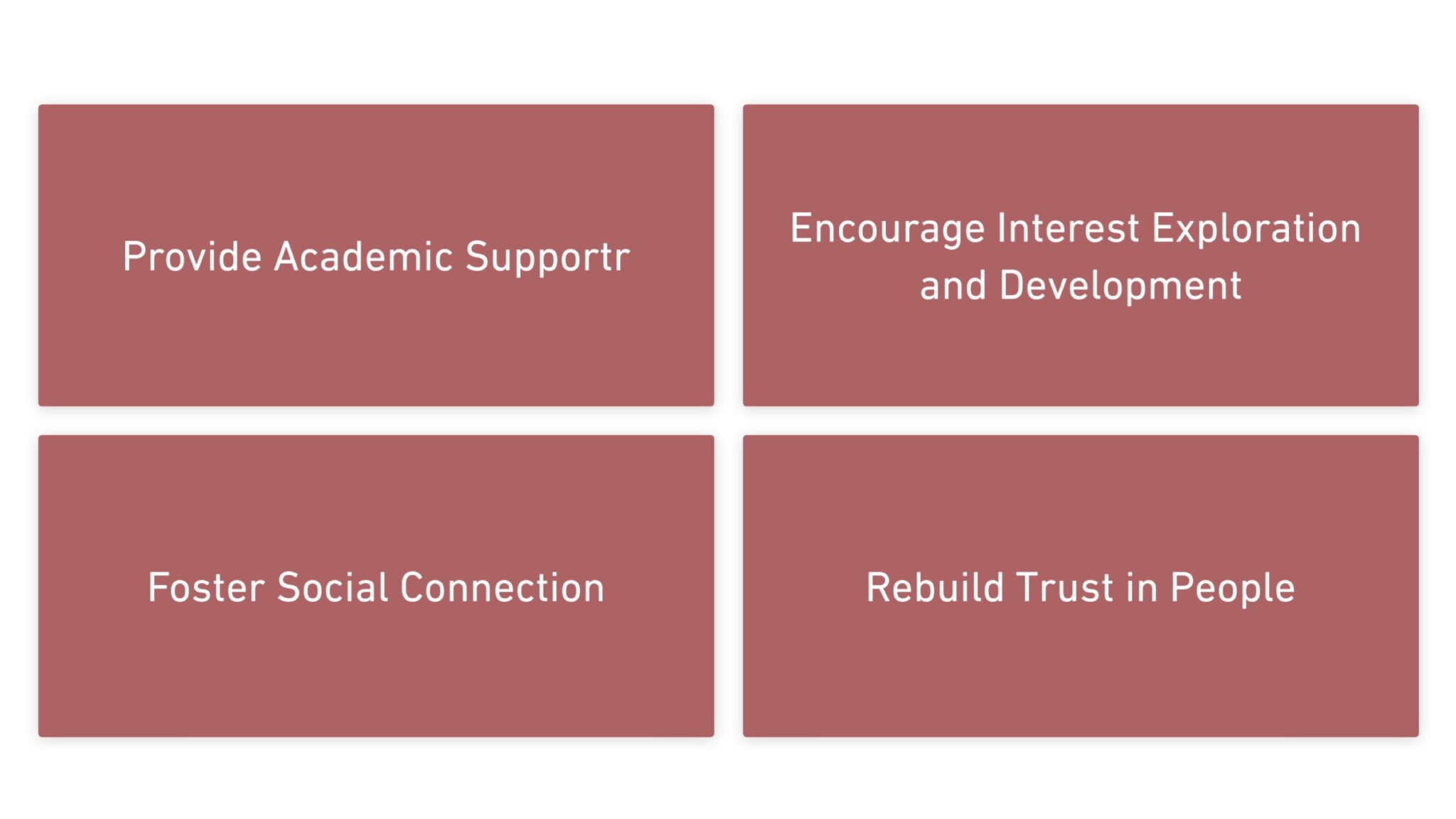
Solution
Volunteer Training
In one year, we recruited over 200 NCHU students as volunteers and hosted 7 workshops/conferences to train them as tutors.
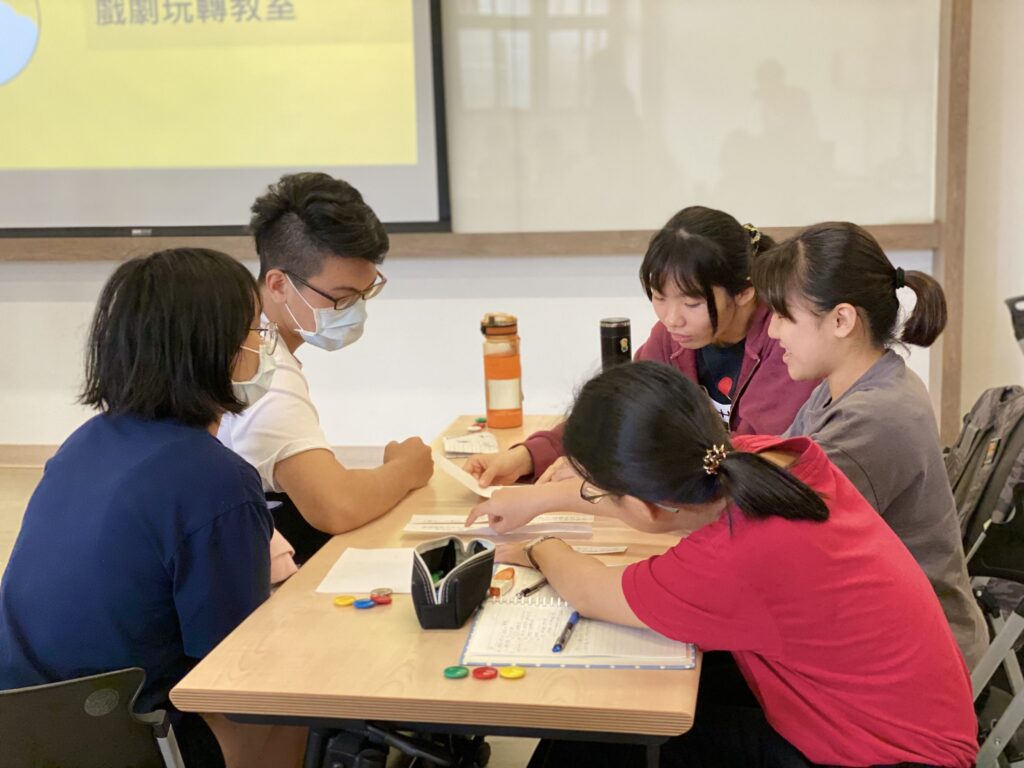
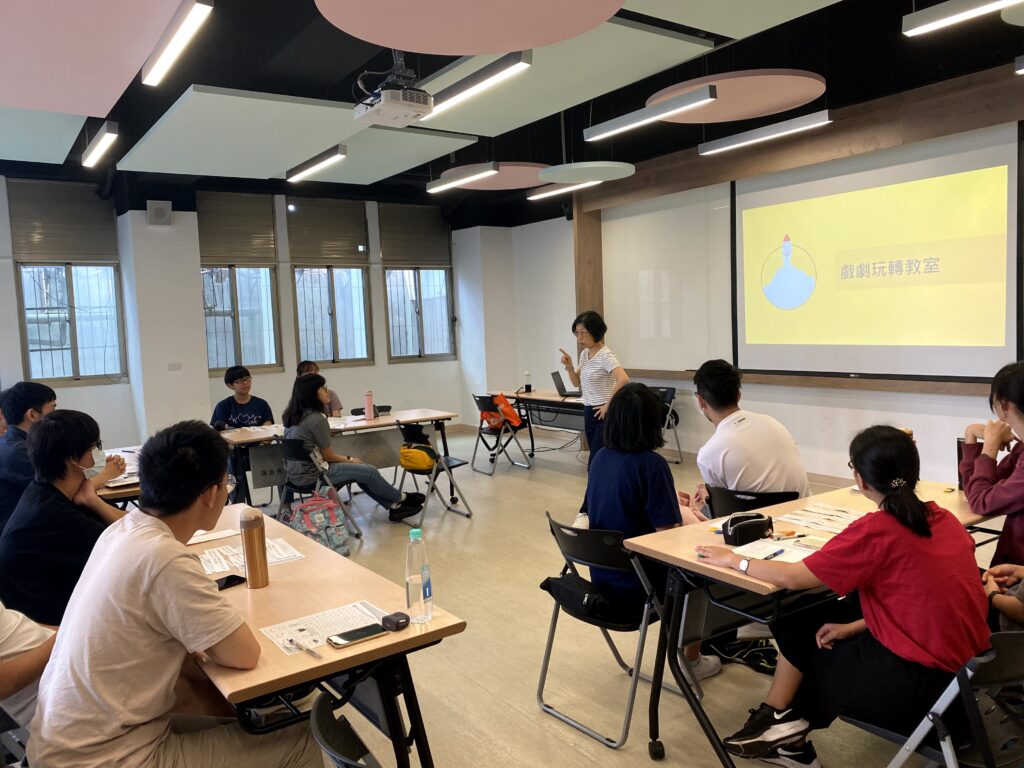
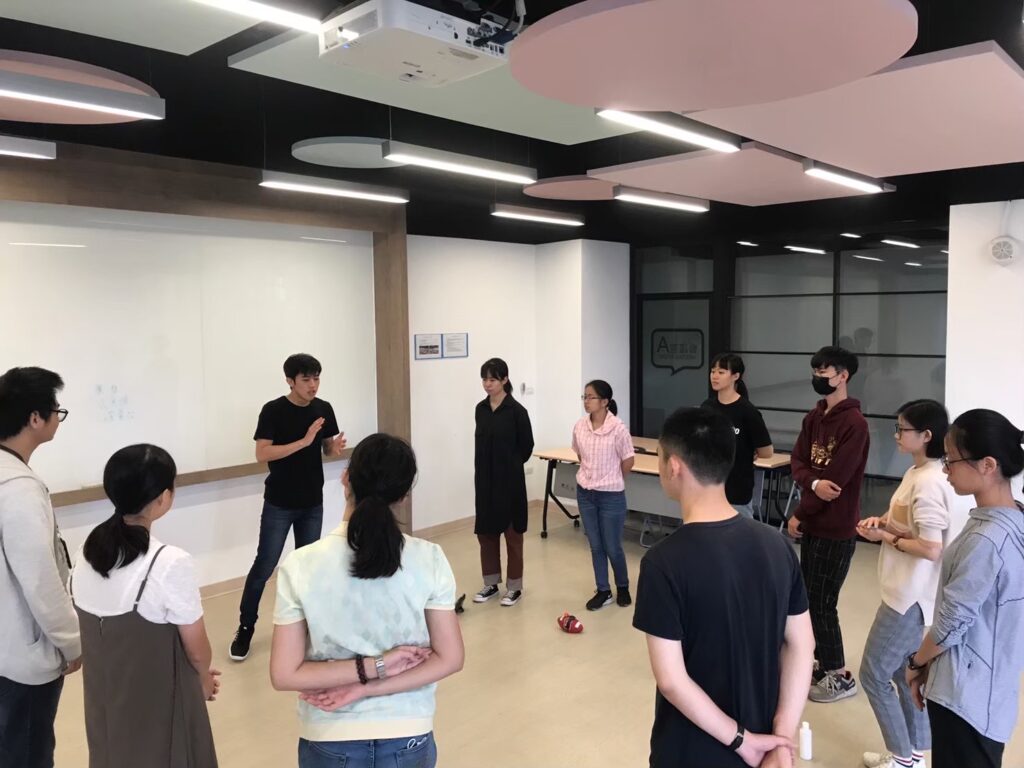
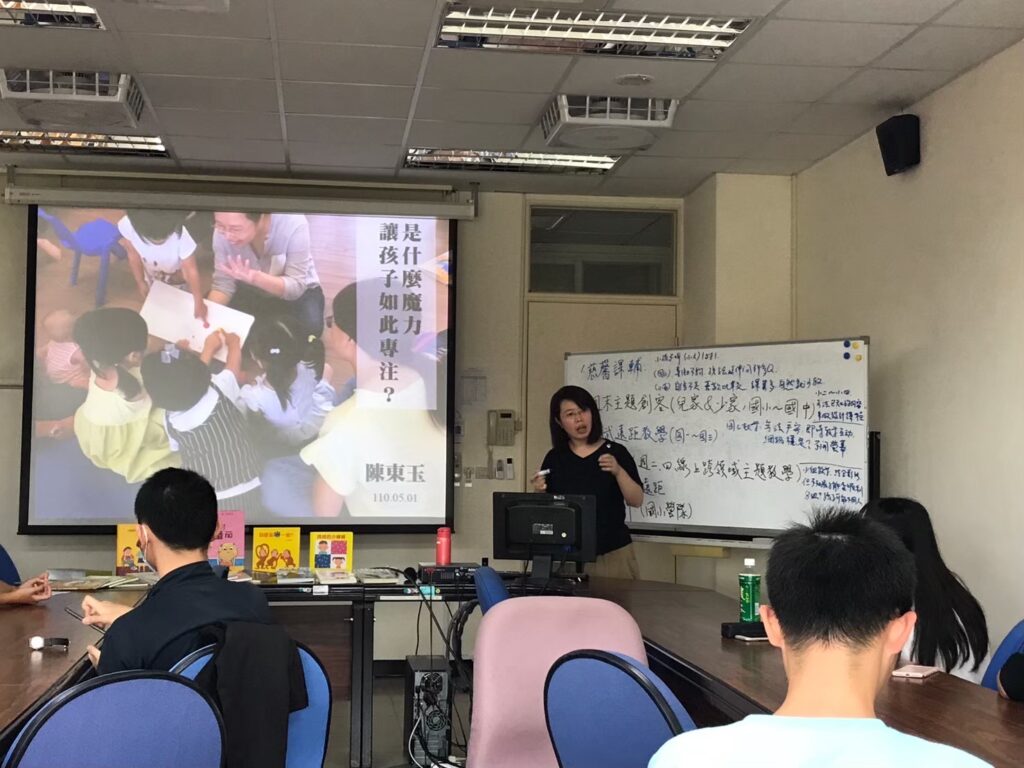
Task Circles
NCHU volunteer students joined the following task circles based on their interests.
Each Task Circle’s volunteers set up their own organizational structure according to their specific needs.
The volunteer service hours were recognized as internship and credit hours by the NCHU Teacher Education Center and the NCHU Curricular Section.
Below are the 5 main task circles:
Assist children aged 7-18 with completing their homework after school, catching up on lessons, and preparing for exams once a week.
While helping them with their studies, we also foster their connection to the outside world. Due to their background of abandonment or violence, many of these children struggle with trust issues.
By providing consistent tutoring sessions, we help them rebuild trust and form meaningful bonds, while also teaching them valuable social interaction skills.
I. In-person after-school tutoring at charity organizations


Provide online tutoring once a week for students in rural elementary and junior high schools.
The sessions include homework review and creative, theme-based lessons tailored through communication between students and volunteers.
Beyond improving their academic performance and helping them achieve higher scores for opportunities to study in the city, the core goal is to give these students choices—to break the cycle of following their parents into blue-collar work and to broaden their horizons by showing them the possibilities the world has to offer.
II. Online tutoring for rural school students
III. Weekend workshops for children aged 4-14 at charity organizations

Organize workshops for young children at the charity aimed at sparking a passion for learning in a playful and interactive way.
For children age 4-12, academic achievement isn’t the main priority; instead, it’s about providing companionship and nurturing their interest in learning through fun and engaging activities.
Previous workshops have featured themes like making ice cream by using salt to absorb heat, exploring suction and tension with bubble-making, and crafting colorful magnetic cups to demonstrate the principles of magnetism. These activities are designed to make learning both enjoyable and inspiring.

For high school students approaching graduation in the charity, we organize university campus explorations and knowledge sessions.
Many of these students struggle academically and may consider forgoing further education after high school.
To help them broaden their future prospects, we arrange campus tours and activities in various university departments. These engaging experiences allow them to understand campus life, explore different academic fields, learn about course planning, and discover future career opportunities in a fun and informative way.
IV. Thematic training for youth aged 15-18 at charity organizations
V. Summer camp in rural schools
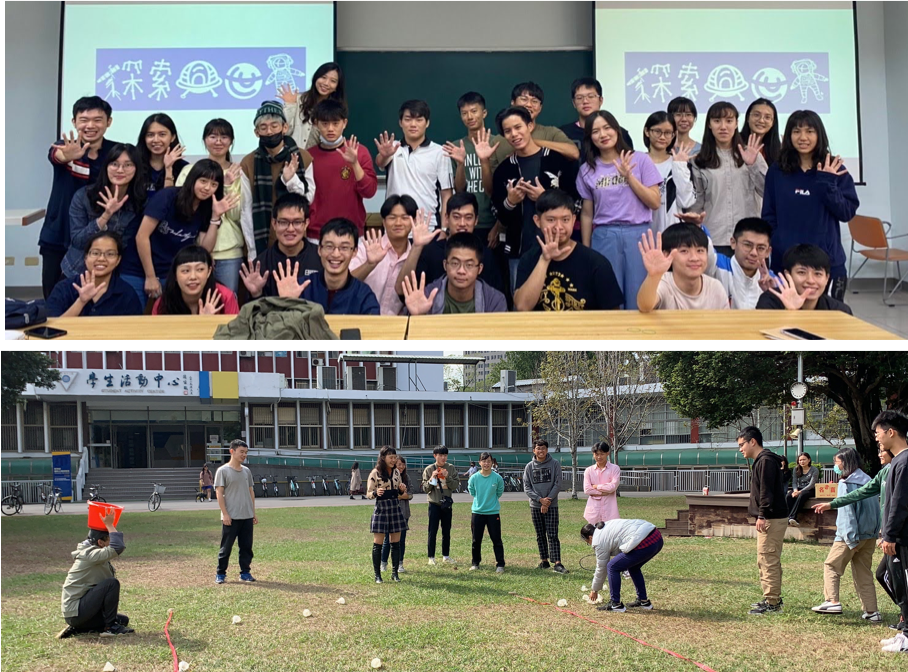
For students from rural junior high schools, we organize a five-day camp to provide them with a comprehensive learning experience.
To enhance the professionalism of the camp, we collaborate with other organizations, including the Legal Studies Club, the Natural Science Experiment Society, and the Volunteer Team.
During school visits, we also learned from the local township office about frequent land rights disputes among indigenous communities. In response, we arranged for professional lawyers to offer legal consultations while the camp is in session.
Rlection
01
Achievement
- Received the Outstanding Club Award from the Taiwan Ministry of Education.
- Expanded our impact to reach 3 charities and 3 rural schools.
- Successfully recruited and managed over 300 NCHU students as volunteers.
02
Skill Development
- Product Design
Implemented product design methodology from research, analysis, and design, with a focus on aligning outcomes with business value. - Leadership
Led club executive team and volunteers, while also overseeing multiple initiatives. - Problem-Solving
Cultivated a resilient problem-solving mindset, overcoming challenges such as developing the club’s structure, collaborating with external institutions, and raising funds for club operations.
03
Areas for Improvement
- Inability to Design Course Content
This challenge hindered the development of a shared teaching methodology and standardized materials, which could have been better adapted to meet the diverse needs of the students. - Strengthening Connections Between Volunteers
The emotional bonds between volunteers were not as strong as desired, which affected team unity and club identity. Hosting more internal events would have helped foster a sense of belonging and camaraderie among members.

